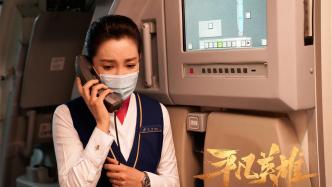
In the early morning of April 30, 2021, the last flight from Xinjiang Hotan Airport to Urumqi that day, China Southern Airlines CZ6820 was taxiing out from the No. 1 gate, ready to take off.
A boy with a broken arm was carried into the airport terminal, and his family cried, "We are going to take a plane! We are going to Urumqi to save our lives!" As a result, a flight spanning 1,400 kilometers and lasting 7 hours broke the civil aviation management routine. emergency rescue began. From Hotan to Urumqi, from doctors, traffic police, ordinary citizens to the airport, flight crew, and passengers, this thrilling relay of life finally achieved a miracle with the unconventional responsibility and struggle of ordinary people.
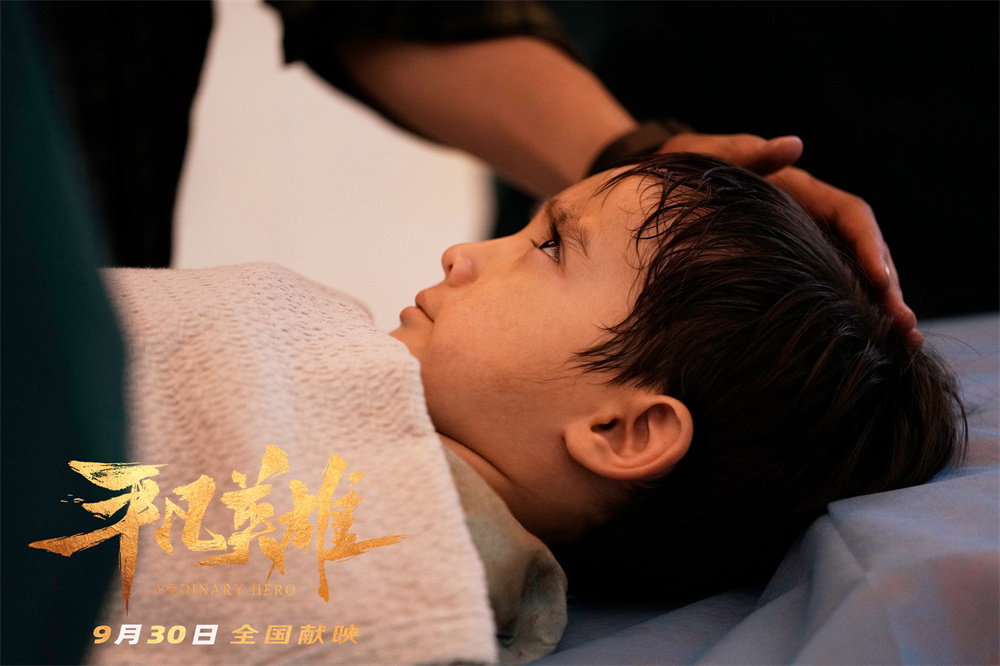
Perlman Parehatti as Wheat
The filmmakers also arrived at the scene immediately after the incident.
Hong Kong director Chen Guohui originally participated in the collection with the feeling of wanting to go to Xinjiang. When he arrived in Xinjiang, he was deeply moved by the local customs and the choices of every ordinary person. He stayed there for five months. .
In order to show the most authentic Xinjiang face to the audience, director Chen Guohui spent two months re-walking this 1,400-kilometer life path. He also interviewed every close witness in detail during the collection. Many unreported details were learned from them.
The film opens up a more omniscient vision, allowing the audience to see what an intricate network is behind every "temporary" decision, which involves the cooperation of multiple parties. The 10-minute non-stop flight requested by the captain and the 140 kilometers less detours were only 10 minutes in the flight range, and the multi-party coordination involved was far beyond the audience's imagination; on the operating table, the chief surgeon almost begged. Adhering to "two minutes for a doctor, a lifetime for a child" and fighting for the boy to save his arm is a risk that he should not have to take in his career.
Every moment when there is a good reason to "act according to the rules" more correctly, every ordinary person stands on the standpoint of life first and makes a choice that makes him more "troublesome". An almost impossible miracle.
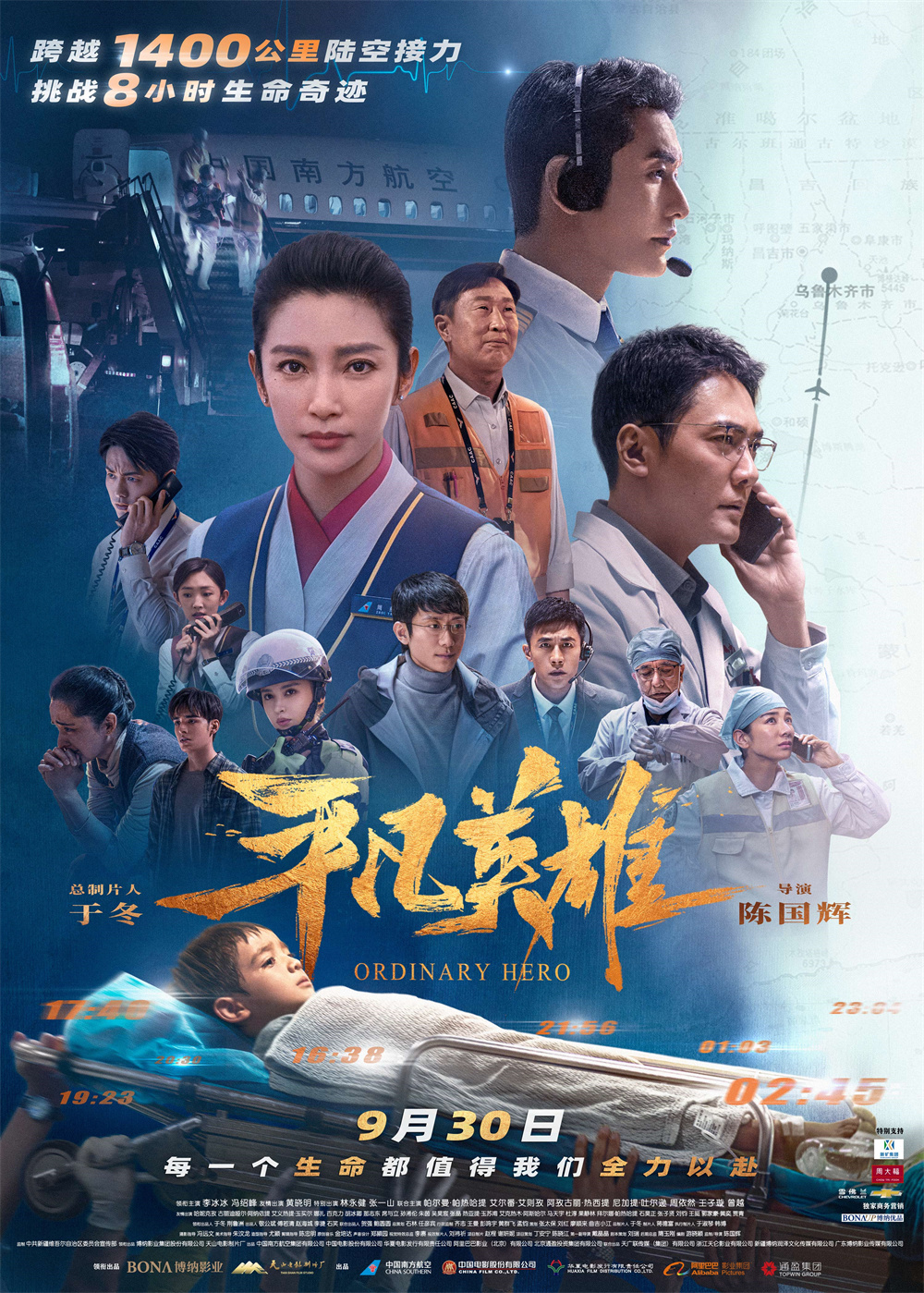
"Ordinary Heroes" poster
As the visit deepened, the chain of relay in Chen Guohui's heart became clearer. It turned out to be such a great thing to others, these relayers all said that they just did their part. It is precisely because they have done their own things well in every link that they have achieved this path of life.
The movie "Ordinary Hero" is the third "hero series" movie produced by Bona Films after "Heroes of Fire" and "Captain of China". Different from the previous two films, the protagonists of "Ordinary Heroes" are no longer a certain group of people or engaged in a certain profession. This heroic film without a specific protagonist, the little boy's arm-in-arm journey, strung together the kindness and kindness of a group of people. Be bold.
"In the face of a crisis, every well-meaning person can resolve the crisis with kindness and break the rules to solve difficulties. Ordinary people who do extraordinary things are heroes." Chen Guohui explained the theme of the film.
Since it is based on true events, the movie was "spoiled" from the very beginning without any suspense about the development and ending of things. But the real hurt and situation restoration, coupled with the unique time and space narrative of the movie, make this scene more exciting.
Before filming "Heroes of Fire", Chen Guohui has been specializing in the field of romantic films. Films such as "Love in the City" and "Bride's Battle" have accumulated quite dazzling box office results for him as a young professional director. In his opinion, there are not only the exploration of emotions that he is good at, but also the "passivity" of young directors being pushed away by the market. As he grows older, he also feels the power of realism more and more. Out of the original intention of a creator, he is more willing to take works with power and social significance as his creative direction at this stage.
In order to restore the thrill of the real rescue, Chen Guohui used the form of a documentary to show the race against time in this rescue operation. The crew of the movie "Ordinary Heroes" tried their best to restore the real scene, accurately restored the cabin of the flight at that time, rebuilt the hospital operating room scene, and reproduced the road conditions in Hotan and Urumqi at that time; in addition to the high degree of restoration of the scene, the crew also specially invited The witnesses of the rescue incident, those real ordinary heroes joined the group to guide, and even acted in their true colors. In order to ensure the authenticity, every scene will be asked in detail about the scene and situation of the prototype characters at that time. This kind of shooting method that strives to restore the truth is also the director Chen Guohui's way of expressing the most sincere respect to the ordinary heroes who have rescued the little boy.
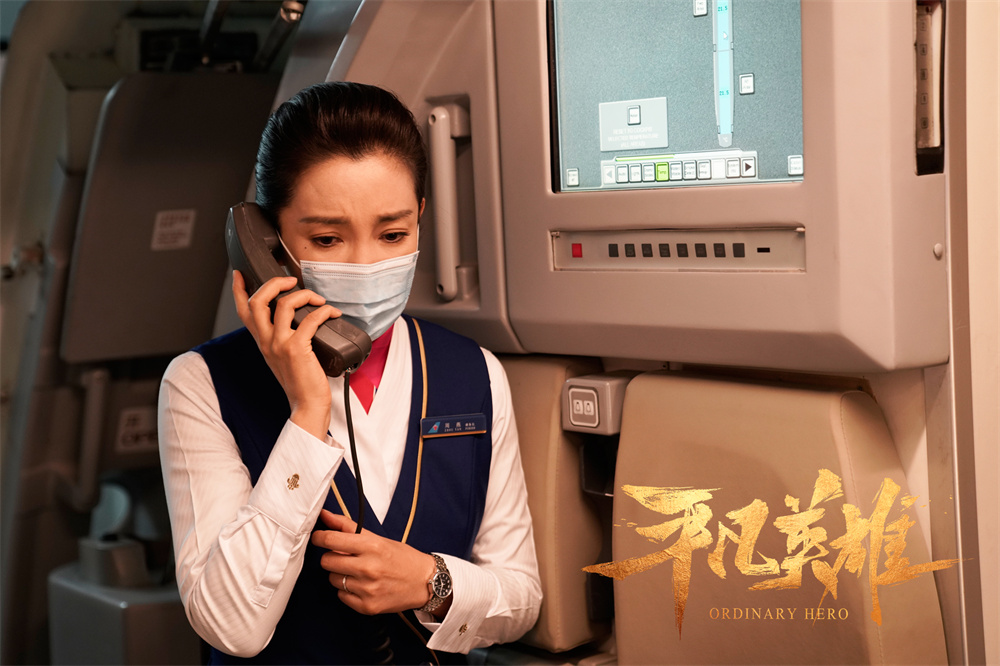
Li Bingbing as purser Zhou Yan
Not only does it pursue authenticity in the scene, but the film also strives for authenticity in the performance of the actors. Before filming, Chen Guohui required every actor to be trained for their role: Li Bingbing participated in the training of flight attendants and accurately expressed every posture and tone of the flight attendants during the performance; Feng Shaofeng experienced the life of a doctor, keeping in mind from the details of clothes to the surgical procedures; Become a "captain", go to participate in aircraft simulation training, and become proficient in every operation of the captain. At the same time, in order to maintain the authenticity of the actors' emotions and reactions, Chen Guohui almost did not let the actors rehearse, and the method of on-site shooting was to directly throw the actors in the prescribed situation to capture the actors' on-the-spot reactions. Many of the film's tearful performances ended up being off-script, freewheeling from the actors' on-the-spot perception.
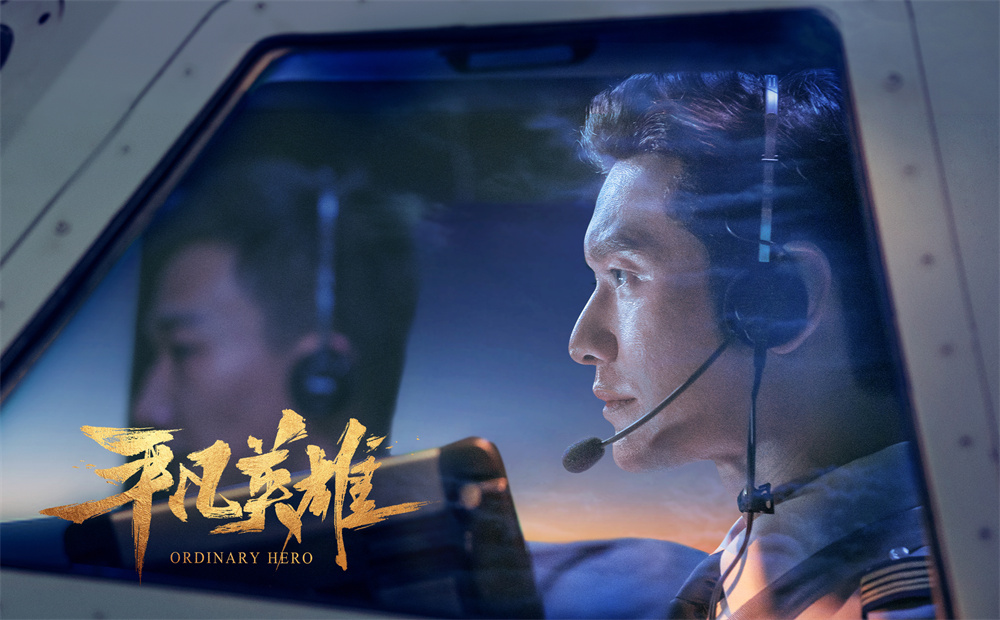
Huang Xiaoming as Captain Xie Huiyang
"Directors all over the world have learned how to 'calculate' and 'design' when learning genre creation, but now I think it's more important to feel them, without having to calculate so accurately, as a director, it is to actively Go experience what impresses you." Chen Guohui said.
Before the film was released, director Chen Guohui accepted an exclusive interview with The Paper, and explained in detail the film creation process like an "8-hour relay".
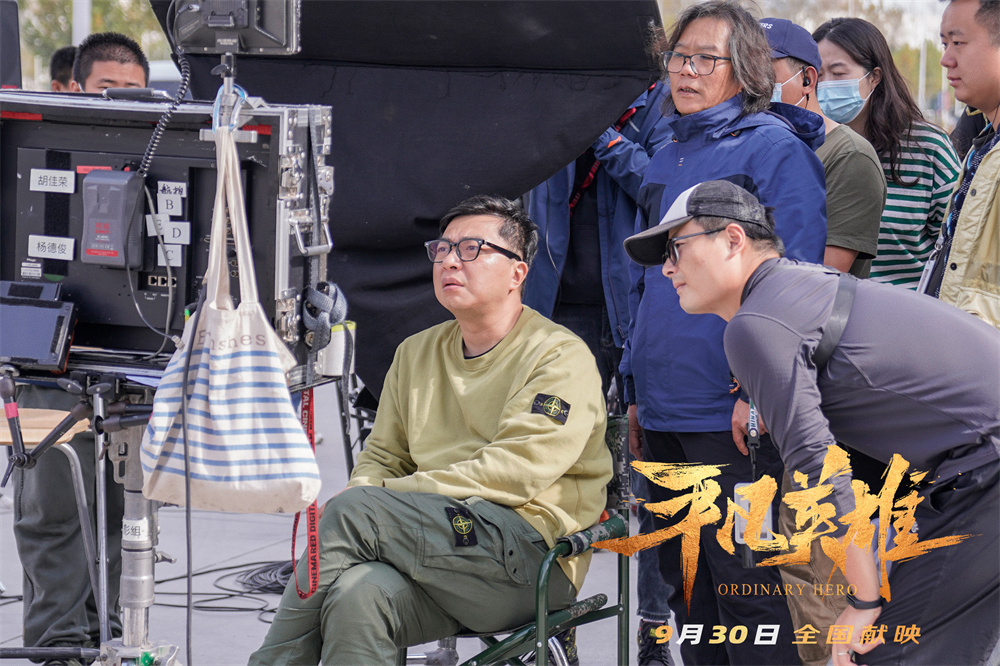
Director Chen Guohui
【dialogue】
Multi-line shooting, just like "Extreme Rescue"
The Paper : You guys went to collect stories after the prototype event of the movie. How was this decision made so quickly?
Chen Guohui : When I saw this story on the news at the time, there were other news about Xinjiang reported by Western media at that time. I felt that Xinjiang was not what they said. Because I have never been to Xinjiang, I thought I should take a look. After we went to collect the wind, we felt that the story was very meaningful. It itself is a bit like a movie script. It was a very tense 8 hours. During these 8 hours, many ordinary people came forward to help children. This kind of "coming forward" moved me very much, and I wanted to make a movie right now. come out. In fact, I went to Xinjiang to collect wind and never came back. I stayed there for 5 months and only came back after filming.
The Paper : In the past, general film production experience has a relatively complete preparatory process. For the operation of filming immediately after an incident like this, how is the entire creative process different from your previous works?
Chen Guohui : We were collecting folk songs, writing scripts, and constantly experiencing the lives of ordinary people in Xinjiang. On the first and second trips, they treated you quite "official", and after getting to know them, sometimes they went out to eat and drink at night. In addition to understanding what was going on at the time, you also need to capture the spirit of the people behind it.
Because the story line itself already exists, it is not so difficult to think of how to shoot. The main reason is that I really want to put a lot of Xinjiang culture and Xinjiang spirit into the script. This is to slowly polish the script. When I stayed in Xinjiang, I sometimes got details and inspiration from chatting with the locals, and I had to constantly discuss with the screenwriter and revise the script.
At the same time, the weather in Xinjiang gets cold very quickly. In September and October, in Urumqi, the temperature at night is only a few degrees Celsius. I don’t want the leaves to turn yellow, so we have very little time. We were looking for a child to perform at the scene. We had to train him to perform for two months and find a way to shoot the child, which was quite difficult.
There are other set-up and preparatory work, all aspects of things are advancing at the same time, just like the movie prototype incident, the extreme rescue of sending the child for surgery within 8 hours, the entire crew felt nervous.
The Paper : Compared with other types of films, this film, firstly, it has a prototype event, and everyone already knows its ending; secondly, it does not have a very obvious villain. How to make this event more genre-like and give the audience more tension in terms of audio-visual and rhythm?
Chen Guohui : During the collection, I discussed with the screenwriter that we will use action movies to shoot the plot. At the same time, in terms of genre, this movie has no villains. The biggest "villain" is time, so we will use the characters of the characters. Movement, film style, editing, etc., express this sense of time urgency. In addition, we zoom in on some details that may not be noticed normally, such as asking for instructions on which departments to pass through for a plane to return home, and how the air force arranges radar in the place where the plane passes. We magnify many small details, and let each small detail be linked to each other to complete the relay of life.
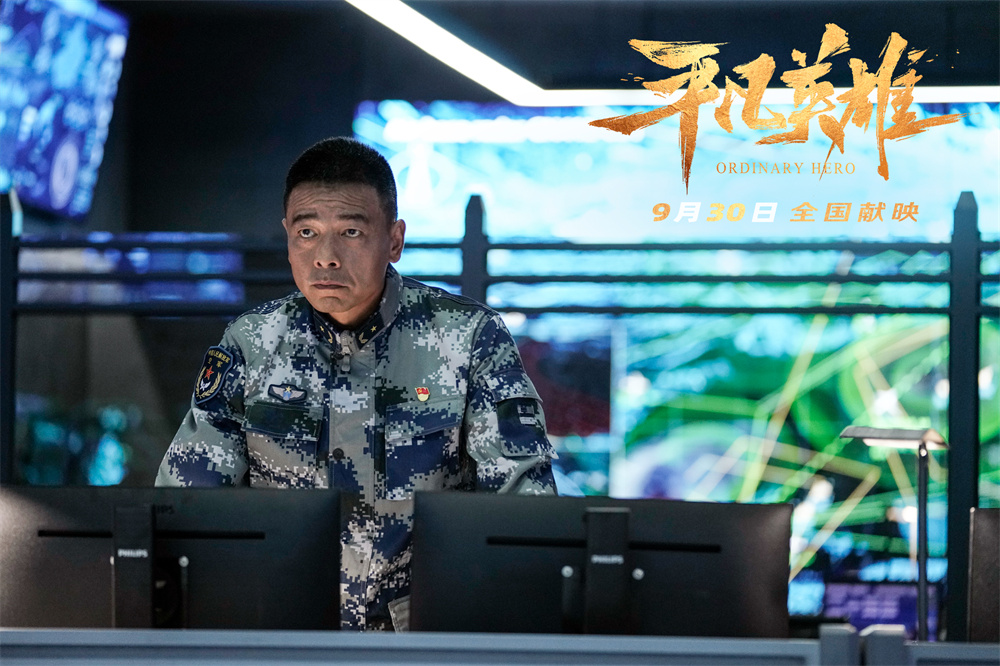
The change of route involves all parties
Ordinary heroes participate in the whole process to ensure the authenticity of the movie
The Paper : This event was relayed by ordinary people in various positions, involving professional knowledge of various occupations, including communication between them. Have you encountered any challenges in group portraits and character design?
Chen Guohui : First of all, when we have finished writing the first draft of the script, we have to confirm with each department that what we have written is correct, including character lines and actions. Secondly, I want to make sure that we have not shown the real life status and appearance of these characters. For example, Dr. Li Li is very busy, so he usually sleeps in the office. The details of these characters can only be obtained by chatting with them slowly. They will not take the initiative to tell their family background. There are some details that are not used in the script, but when you have these things, you will feel at ease when creating this character.
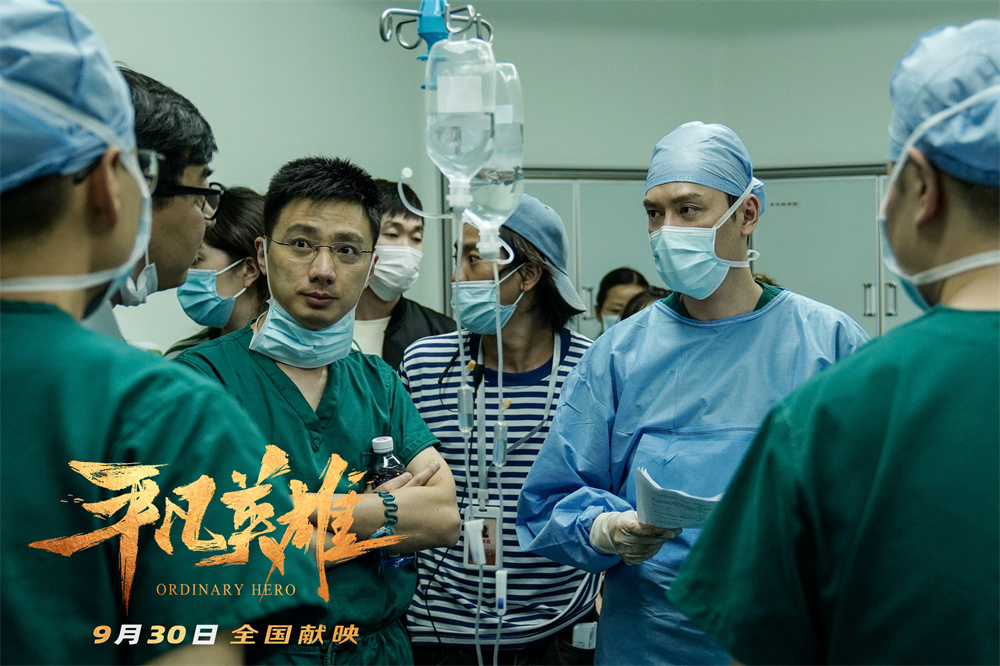
Director Chen Guohui communicated with prototype doctor Li Li and actor Feng Shaofeng
The Paper : The protagonists of the film are well-known "big stars", and the audience may also find it difficult to equate their faces with "ordinary". In the director's handling, how do you narrow the psychological distance between these "big stars" and the audience?
Chen Guohui : Because when I was collecting styles, I found that they were somewhat similar to the prototype, so I asked them to play. Bingbing and Zhou Yan are actually quite similar, with big eyes with stories in them, and a bit shy when speaking. After I met Dr. Li Li himself, Feng Shaofeng flashed in my mind. They gave me a very similar feeling.
The most important thing is that all the prototype characters are present when shooting, so that these actors can perform more down-to-earth. I don't think the actor being a big star and being "ordinary" are in conflict. If it's a documentary, of course you're going to get the archetypes to reenact it. But we are a movie, and we need to use the techniques and expressions of the movie to convey the meaning behind the event.
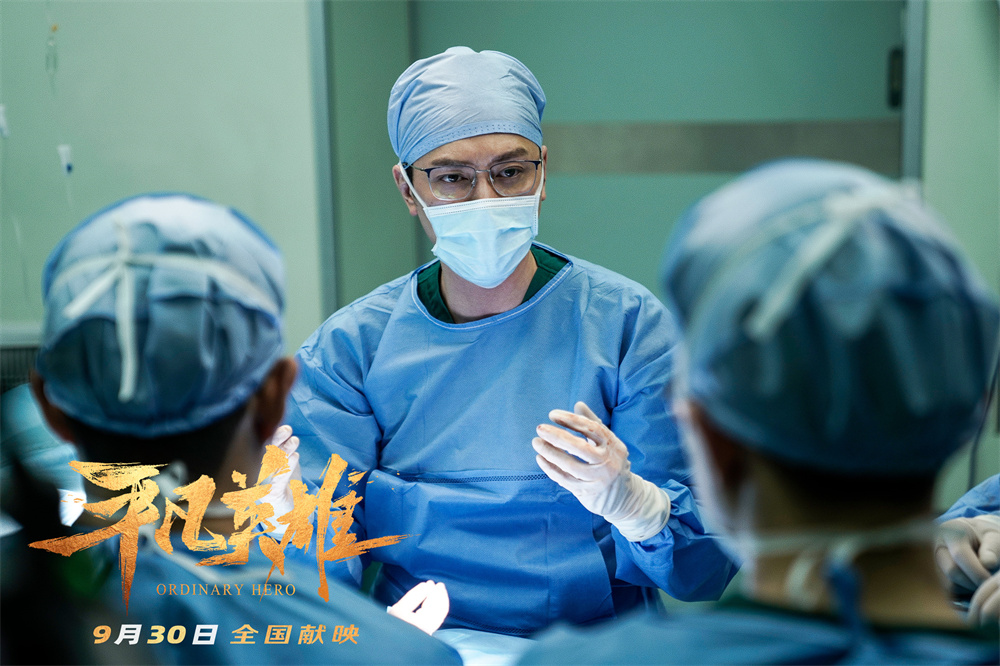
Feng Shaofeng as Doctor Lin Li
Surging News : Including "Heroes of Fire", many themes in recent years have begun to shape the characters from the previous "weiguangzheng" to mining materials from ordinary people. Based on your experience in creating these two films, can you talk about your own view of heroes? How can I make this kind of film better?
Chen Guohui : I think the definition of a hero is different in every movie. Firefighters in "Heroes of Fire" are a noble profession, and their daily work may encounter unknown dangers and difficulties. The heroes of Ordinary Heroes are ordinary people around us who may one day step up and help you.
These ordinary "heroes" seem to be different heroes from firefighters. In fact, everyone may be a hero in life. You are a hero if you do your job well, and if you are a good mother, you are also a hero. The main thing for me is that you have to feel them. I don’t think being a director can’t count too much, how to set tears, laughs, and earn box office, so you will deviate from your original intention of making a movie. Now I just shoot at will.
The Paper : When it comes to calculating tears or laughter, and setting up rhythm and rhythm sections, is this kind of related training emphasized in the previous Hong Kong film or screenwriting system? How is it not subject to such "professional habits"?
Chen Guohui : I think it's not just Hong Kong, directors all over the world are like this. Mainland directors who learn to write genre scripts will do the same. The sense of rhythm must be understood, but sometimes you can't calculate it too clearly. For example, there is a scene in "Heroes of Fire" in which Du Jiang told those firefighters to take a video on their mobile phones to say goodbye to their parents. At that time, the script was not written in great detail, so I just told them, come, tell your parents the last sentence, maybe you will never see each other for the rest of your life. In fact, I didn't know where this scene was in the movie at the time, but I knew the scene was meaningful.
There are also many such on-the-spot scenes in "Ordinary Heroes". When a scene was being filmed, the little boy who played the broken arm hadn't seen his own mother for more than two months. He said to Bingbing, "Mom...I miss my mother." Bingbing responded improvised and said "Mom is here, don't be afraid." This dialogue is not in the script, it is played by children on the spot. If you had arranged for him before, he would not be able to speak these dialogues.
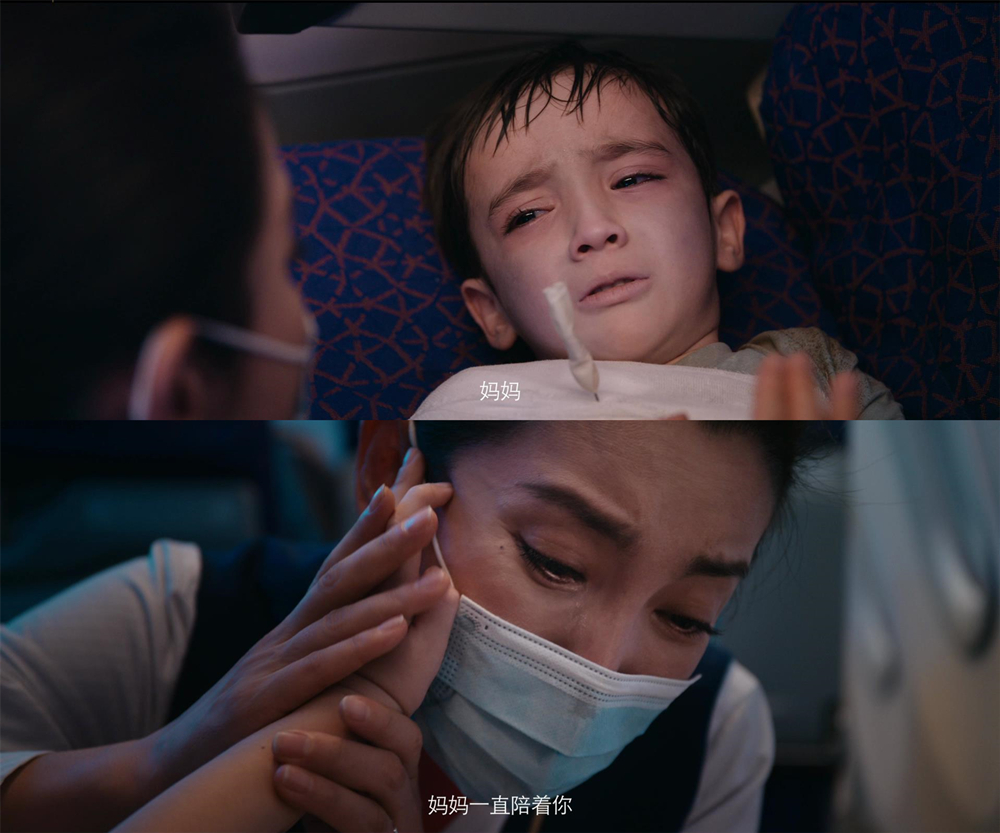
"Ordinary Hero" trailer screenshot
From romance films to main themes, grow together with the Chinese film market
The Paper : At the beginning, you made a lot of romance films, but in the past two years, you started making this "hero series". Do you have any useful experience in making romantic films in the past for excavating the emotional expression of the current theme?
Chen Guohui : My current style is very different from the way I used to shoot romance films. Many scenes in romantic films are pre-set and precisely shot. In the past two years, whether it is "Heroes of Fire" or "Ordinary Heroes", I wrote the script first, but after I arrived at the scene, I "opened the script" and let the actors feel and act on the scene. When the actors in "Heroes of Fire" went to put out the fire, they really had to face the fire, so the "fear" they showed was very real. This time in "Ordinary Heroes", I pushed the point of (on-site creation) more directly. I don't want to rehearse with Bingbing. I don't need actors to stand in a certain position to do specific actions. play.
The Paper : Is this change in subject matter the choice of the self or the choice of the market?
Chen Guohui : It is my own choice. When I read movies, I prefer to watch genre movies, action movies, those very tense movies, and I usually rarely watch romance movies. But at that time, it was easier to find investors for romantic films, because the cost was low and there were no big scenes. I was lucky when I made the first movie, "Love in the City", the investment was not bad, so I continued to make this genre.
"Heroes of Fire" was when I met a firefighter at that time. After hearing this story, I chatted with Yu Dong (producer), and everyone felt very moved. I wanted to shoot it very much, and he agreed. It didn't say that it was deliberately changing the type, but it just came across an opportunity. In recent years, the development of Chinese films has been getting better and better, the box office is getting higher and higher, and the audience is also growing, so investors have the budget to make bigger films. As a director, I also grow and transform along with this process.
The Paper : When you started to come into contact with such real-adapted movies, has your understanding of movies, including the meaning of movies, changed?
Chen Guohui : It must be more down-to-earth. To shoot this kind of true story, as a director, you have to feel the meaning behind the story. "Heroes on Fire" is certainly the kind of courage of firefighters who work fearlessly, knowing that they may die someday and not being paid well. "Ordinary Heroes" is about ordinary people stepping up to help others. That day was originally an ordinary day, but because of their actions of saving people, this day was extraordinary. To be a director is to actively experience what moves you.
The Paper : Will the "Hero Series" be the direction of your future creations?
Chen Guohui : I don't know. "Ordinary Heroes" did not intend to continue the so-called "hero series" at the beginning. I remember the original title of "8 Hours", when a visitor told us during the collection, "We ordinary people do ordinary things, Is he a hero?" So he decided to change his name to "Ordinary Hero".


